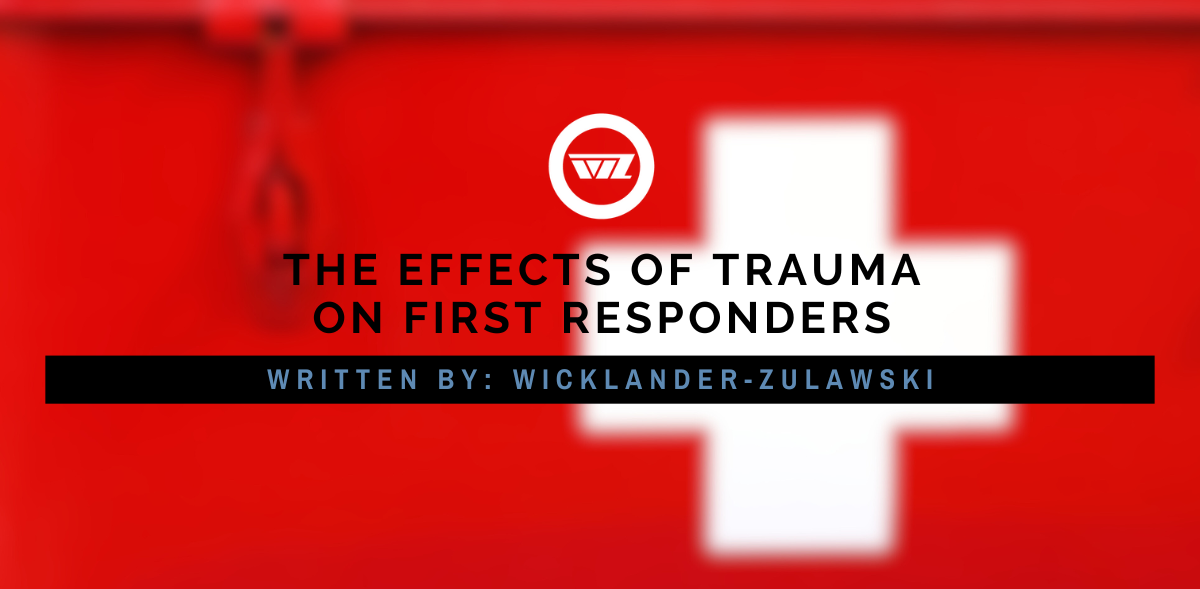“But how are you with paper?” is a question that can be heard within many organizations when deciding who is best suited for assignment to a sensitive case. There may be several employees who have the intellectual ability and the social skills necessary to successfully complete an assignment, but “How are they with paper?”
The ability to effectively document investigative actions is a skill that must not be overlooked. The consequences resulting from a poorly written report may range from slightly embarrassing to downright disastrous. Documenting a comprehensive investigation is a skill that can be learned. We acknowledge a lack of education in writing, spelling, and proper sentence structure is undoubtedly a disadvantage, but may be overcome with additional education and a desire to learn.
The following information is not an all-encompassing guide to details that should be included in all investigative reports. Rather, it is information we found extremely valuable during our investigative careers in the Public Sector. Depending on the scope of the investigation and the individual characteristics of an assignment, much of the following information will also be of value to investigators in the Private Sector.
What is the purpose of a well-documented investigation?
- To document the truth and what occurred during an investigation
- To lock a series of events and discourage changes in events, due to malice
- To enhance the ability to recall truthful facts
- To provide interested parties with truthful facts
To Document the Truth and What Occurred During an Investigation
A well-written investigative report will document, usually in chronological order, a truthful account of what occurred during an investigation.
It is not the investigator’s responsibility to determine the guilt, innocence, or outcome of an investigation. The investigator is tasked with recording truthful and objective investigative facts. Decision-makers or other interested parties will determine the guilt or innocence of a subject based upon the investigator’s documentation. If possible, all information included in an official report should be substantiated through the investigation.
Investigators must not offer their assumptions or personal opinions within an official report. The information included in an official report must be based upon relevant facts only.
Documentation should include, but is not limited to:
- How and by whom the investigator was assigned to the case? The person who assigned the investigator should be clearly identified. The day, date, and time of the assignment should be noted. Decision makers may find the day of the week to be beneficial when determining the ordinary, daily activities of victims, witnesses, and suspects. It is always helpful to document the day, date, and time of every relevant action during the investigation.
- After receiving the assignment, what did the investigator do and where did he or she go?
- Was the investigator accompanied by anyone else? If the investigator was accompanied by another investigator, that investigator must be clearly identified. Document the activities of others, if known, but only information that is certain. If the information is not certain, it is always best for the assisting investigator to submit their own investigative report.
- Upon arrival at the location of occurrence, what observations were made by the investigator? These observations should include a description of the area of occurrence, any unusual conditions, and a complete description of any action taken by the investigator or others.
- The temperature, whether inside or outside, is often important. Document the lighting conditions, the ability to see clearly, or obvious obstructions to clear vision.
- Document any unusual smells upon entry to a scene (ex. cigarette smoke, perfume, gas, etc.). These smells are transient and dissipate over time. If not documented, future testimony may not be credible.
- If the investigator responded to the location of occurrence, with whom did they converse, and what did that person relate to the investigator?
- All persons interviewed should be documented as fully and completely as possible. These persons may be needed for future interviews or testimony. Their personal identifiers and the content of their interviews should be thoroughly documented to ensure their future contact. Social Security Numbers, Driver License Numbers, family contact information, and apartment numbers are extremely beneficial. Get victim/witness identifiers upfront: they can leave at any time and having their identifying information upfront can assist in locating them for follow-up interviews later.
- If an interpreter was used, that person must be clearly identified.
- All witnesses, including members of law enforcement, should be interviewed separately, ensuring individual perceptions are noted. Witness descriptions of victims, witnesses, or suspects should be individually documented and always attributed to the specific source. Investigators should not blend multiple interview descriptions to conform with common characteristics. Witnesses’ perceptions differ. Understandably individuals have different opinions regarding sex, age, height, weight, description, and color of clothing, etc.
- If during an interview, the subject uses slang terms or street jargon, ask follow-up questions. Probe for and document the intended meaning for the term used. Future testimony may rely on the meaning the subject places on the terms used. This is especially important in sex cases, when victims, witnesses, and even offenders use special terms for body parts that are not consistent with official terminology. The investigator needs to probe for an accurate meaning for these terms and the specific body part or action that is referenced.
- When questioning subjects, probe for relationships between persons involved in an occurrence. This information may be beneficial to those objectively tasked with determining the outcome of investigations.
- Depending on the individual peculiarities of each case, investigators should probe and document the location where participants in an occurrence were coming from, and the location they were going at the time of occurrence.
- Investigators should probe and document not only who was on the scene of occurrence, but who was previously on the scene and left before the investigator’s arrival. Additional witnesses or involved persons should be considered.
- Was any evidence seen and/or recovered? If so, by whom? The investigator should record the associated inventory number(s), description, recovering personnel, and related information regarding inventoried items.
- Continue to document your actions as an investigator. The investigator should use short, easily understood sentences. Do not use slang or professional jargon that may not be understood by the reader. Consider using terms that are precise in meaning but understandable. Investigators want to be specific in their language but also consider who will be reading the report when documenting terminology.
- Victim, witness and suspect interviews should never be blindly accepted as true. If possible, all information must be corroborated through investigative means, especially confessions of involvement. Multiple cases have been documented where persons who confessed to involvement were incarcerated at the time of the occurrence or were otherwise incapable of being the perpetrator of a crime.
- For many reasons, suspects lie to investigators. If a suspect presents an alibi, the alibi must be documented and checked for truthfulness, even if not believed. If a person tells an investigator that he/she discarded a weapon used in a crime in the river, the investigator must attempt to corroborate the information. In many cases, divers tasked with recovery will tell investigating officers, due to river conditions, it is too dangerous to search for the weapon. This information and the official source must be thoroughly documented in a report. Likewise, if a suspect tells authorities that evidence was discarded in an identifiable sewer, or thrown on the roof of a building, this information must also be documented. If needed, Streets and Sanitation or the Fire Department should be contacted for help in the recovery. All actions, persons involved, and results of the search should be recorded in a report.
- In other situations, suspects may tell investigators that they were with unidentifiable persons at different locations at the time of a crime. The investigator should probe for descriptive information, go to the alleged site, and canvass the area to verify the subject’s alibi. All persons interviewed and information received should be thoroughly documented. If not, the defense may truthfully allege that defense alibis were ignored.
- Document when a victim/witness/offender states that communication between parties occurred on social media. These assertions will provide investigators with additional places to look for corroborating evidence. Like corroborating an alibi, every effort should be made to verify if social media evidence exists and what it may be. Investigators should note that social media investigations are coming up in multiple types of cases and will often extend the investigative timeline as they often require the drafting and serving of search warrants or subpoenas and the accompanying wait time for responses.
- Investigators should always probe for the suspect’s motive for a crime. A suspect’s thought process is critical for decision-makers when deciding the fate of an individual.
- If possible, all information included in an official report should be corroborated and verified. If the information is not verifiable, document the steps taken in the unsuccessful attempt to corroborate the information and why the attempt was unsuccessful. Sometimes chasing down a dead-end to document it’s a dead-end (“the cameras don’t work” or “video shows no other witnesses”) is necessary to show the thoroughness of the investigation and address possible defense lines of inquiry in court.
- Investigators should be alert to their own personal bias based upon information received from written reports, prior interviews, or debriefing from other official sources.
- Do not limit the information that may be helpful to the defense. The investigator is tasked with recording all truthful and objective investigative facts, and the defense is entitled to those facts. Investigations should be aimed at discovering the truth, not obtaining a conviction. Be mindful of organizational policies, state laws, and case law regarding the retention of investigator notes and other work products for production in court.
To Lock Statements and Discourage Changes, Due to Malice
A well-written investigative report will lock a victim, witness, or suspect into a series of events that, if changed, may be impeached at a later date. Some situations occur after the original documentation of an incident that may encourage a victim, witness, or suspect to change their original recording of events. These situations may include personal motivations, dissatisfaction with an organization, organizational personnel, or coercive action(s) by others. It should also be noted that an individual’s original version of events may be tainted for the same reasons. These circumstances demonstrate why investigations should be documented and corroborated as truthfully and accurately as possible. The final disposition of a case may be based upon the objective and unbiased documentation of the investigative officer assigned.
Depending on the characteristic of a particular case, investigators should consider interviewing and obtaining statements from close friends and/or family members of the suspect. These persons may give truthful information that will corroborate or contradict a suspect’s statements. These same individuals may be encouraged, at a later date, to fabricate alibis. Investigators should always be aware that family members or friends may give false information in the belief they are helping their loved one or friend. Investigators should attempt to verify all information received.
Regarding documentation of victim/witness/suspect statements – we are moving to a time where audiovisual recordings are becoming the preferred method of the general public for establishing the legitimacy of a statement (much as the “CSI Effect” has affected the public perception that forensic evidence is/should be available to corroborate all crimes). Investigators should consider digitally recording victim/witness/offender statements in serious felony cases in accordance with their organizational policies and state laws. When documenting recorded statements, investigators can then refer readers of their reports directly to an audio or video recording of the statement for corroboration.
To Enhance the Ability to Recall Truthful Facts
We have often been called to provide courtroom testimony in cases that were heard multiple years after the incident in question. Indeed, one author has recently been asked to testify in a case that originated in 2003. At the time the case was concluded, approximately fifteen years had passed from the time of the original occurrence.
The same author has also had a recent request to testify regarding the facts of a case originally occurring in 1992. Approximately twenty-eight years had passed since the original documentation of the case. Fortunately, this author recorded the original facts documented in his existing reports. Without this information, there is no way the human mind can retrieve the exact recording of the events at the time of the incident. Due to the passing of years and the interference of similar incidents, the author had little or no independent recollection of the occurrences. The memory of the circumstances was refreshed by a truthful and well-documented report that could be relied upon for accurate testimony. This refresher would not have been possible if crucial and relevant information was withheld that the author felt would affect the desired outcome. The lesson learned from this personal experience is to “document everything.” An investigator’s memory is not perfect. Past experience from personal court testimony suggests that often, if the information is not documented, decision-makers will not accept that information as true.
To Provide Interested Parties with Truthful Facts
Defense Attorneys, Prosecuting Attorneys, and other interested persons are very concerned with what information is included in investigative reports. This information is relied upon to develop case strategy and to determine the victims, witnesses and suspect’s expected testimony. If the documented information proves to be unreliable, this will question the integrity and reputation of the investigator in future cases. An investigator’s professional standing often determines the success of his chosen profession: integrity means everything to their reputation. If an investigator’s integrity is questioned, due to an unprofessional, subjective and biased report their career may be placed in jeopardy.
Unfortunately, the only way investigators will genuinely become aware that their court writing skills are sufficient will be when the information included in their report is the only information available to determine the outcome of a specific case. In some cases, the investigator will be mildly embarrassed because of missing information that should have been included in the documentation. In other cases, the outcome may be much more severe: the release of a guilty party from custody, a punitive judgment against the officer, or substantial personal and public humiliation.
We suggest that investigators should seek other professionals who are respected for their report writing abilities. Read their reports and try to learn from their strengths and weaknesses. Do not settle for achieving their level of accomplishment.
Always try to better your potential. If you are called to testify in court, what questions were asked that could not be answered by information in your report? If relevant and reasonable, consider including this information in your next report. Review past cases and try to recall questions that were asked that could not be answered by information included in your report. Should this information have been included in your documentation? Skillful report writing is an ongoing process that must constantly be updated and improved.
Bryan D. Barlow is a Certified Forensic Interviewer employed as a training coordinator for the Chicago Police Department’s Detective Division. He sits on the Advisory Board of the International Association of Interviewers.






